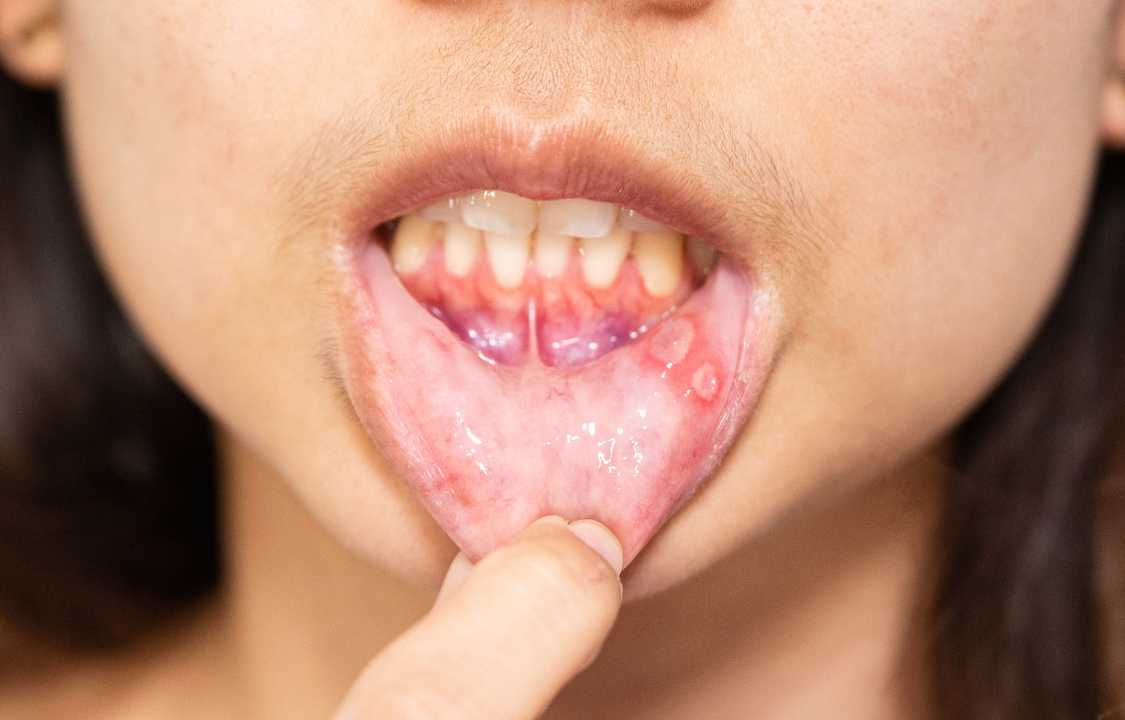Oral Care
What Causes Canker Sores?
The exact cause of canker sores is not yet completely understood. However, there are several known triggers, including stress, injury, and nutritional.
Canker sores, also medically known as aphthous ulcers, are a common oral condition characterized by roundish, whitish sores that manifest inside the mouth. These painful sores can occur on the gums, the roof of the mouth, and inside the cheeks. While canker sores typically resolve on their own within a few days, they can be uncomfortable. In this comprehensive exploration, we delve into the potential causes, triggers, and risk factors associated with canker sores to provide you with a deeper understanding of this oral condition.
The Enigma of Canker Sore Causes
The precise cause of canker sores remains elusive to medical experts. However, it is widely believed that the development of these oral sores is closely linked to the immune system’s activation. Despite this uncertainty regarding their origin, one thing is certain: canker sores are not contagious. You cannot acquire them from others or transmit them to anyone else.
Identifying Canker Sore Triggers
While the exact cause of canker sores remains unknown, certain factors are known to trigger their development. Understanding these triggers can help individuals manage and potentially avoid the discomfort associated with canker sores.
1. Stress: Stress is a well-documented trigger for canker sores. The relationship between stress and canker sores may be attributed to changes in saliva composition, including elevated levels of the stress hormone cortisol. Additionally, stress may lead to habits such as biting the inside of the mouth, which can cause injuries that subsequently develop into canker sores.
2. Nutritional Deficiencies: Some evidence suggests that deficiencies in specific essential nutrients can contribute to the development of canker sores. Nutrients critical for blood cell formation, such as folate, iron, vitamin B6, and vitamin B12, are believed to play a role in canker sore development. Low levels of other nutrients, including thiamine, zinc, and vitamin D, may also serve as triggers.
3. Injury to the Mouth: Trauma or injuries to the oral cavity can precede the formation of canker sores. Such injuries can result from various factors, including sharp or broken teeth, poorly fitting dentures, braces, dental procedures, aggressive tooth brushing, accidental biting of the inner mouth, or burns caused by hot food or beverages.
4. Hormonal Changes: Fluctuations in hormone levels, particularly during menstruation, are commonly associated with the development of canker sores. These hormonal shifts can make individuals more susceptible to experiencing canker sores.
5. Weakened Immune System: A compromised or weakened immune system can make individuals more susceptible to canker sores. Viral infections, such as the common cold or flu, can lower immunity and create an environment conducive to canker sore development.
6. Exposure to Allergens or Toxins: Allergic reactions or sensitivities to certain foods and ingredients, including sodium lauryl sulfate found in oral hygiene products, cinnamon, cheese, and citrus fruits, can trigger canker sores. Exposure to toxins, such as nitrates in drinking water, is another potential trigger for these oral sores.
Is Canker Sore Development Hereditary?
There is compelling evidence to suggest that canker sores have a hereditary component. If a family member, particularly parents, has a history of recurrent canker sores, an individual may have an increased likelihood of experiencing them as well. In fact, if both parents have a history of canker sores, a child’s risk of developing them can be as high as 90%. Conversely, if neither parent has a history of canker sores, the risk drops to approximately 20%. This familial pattern indicates a genetic predisposition to canker sores.
Approximately 24% to 46% of individuals who frequently experience canker sores have a family history of this condition. Researchers have identified several genes potentially associated with the development of mouth ulcers, many of which are linked to immune system regulation.
Exploring Risk Factors for Canker Sores
While canker sores can affect individuals of all backgrounds, some groups exhibit a higher propensity for developing them. Understanding these risk factors can provide valuable insights into who is more likely to experience canker sores.
1. Gender: Women have a higher likelihood of developing canker sores compared to men.
2. Age: Canker sores can occur at any age, but they most commonly make their initial appearance during adolescence and young adulthood. Studies suggest that the highest incidence of canker sores is between the ages of 10 and 19.
3. Underlying Health Conditions: Individuals with certain underlying health conditions, such as gastrointestinal diseases or HIV infection, may have an elevated prevalence of canker sores.
4. Cancer: Some cancers, including those affecting the mouth, pancreas, head and neck, breast, and prostate, may be associated with the development of canker sores.
5. Socioeconomic Status: Interestingly, socioeconomic status appears to influence an individual’s likelihood of developing canker sores. Those in more affluent socioeconomic classes may be more prone to this condition.
6. Oral Hygiene: Maintaining good oral hygiene practices is associated with a lower risk of canker sore development. Individuals who prioritize oral health are less likely to experience these oral sores.
In Conclusion: Navigating the Complex World of Canker Sores
Canker sores, characterized by painful whitish sores inside the mouth, continue to intrigue medical experts due to their elusive causes. While their origins are not yet fully understood, various triggers, including stress, nutritional deficiencies, mouth injuries, hormonal changes, weakened immunity, allergens, and toxins, have been identified.
Furthermore, familial patterns suggest a genetic predisposition to canker sores, with family history playing a significant role in an individual’s likelihood of experiencing these oral sores.
By comprehensively exploring the causes, triggers, and risk factors associated with canker sores, we gain a deeper understanding of this common oral condition. Armed with this knowledge, individuals can take proactive measures to manage and, in some cases, prevent the discomfort associated with recurrent canker sores. Prioritizing good oral hygiene and avoiding triggers whenever possible are essential steps in minimizing the impact of these enigmatic oral sores on one’s quality of life.

